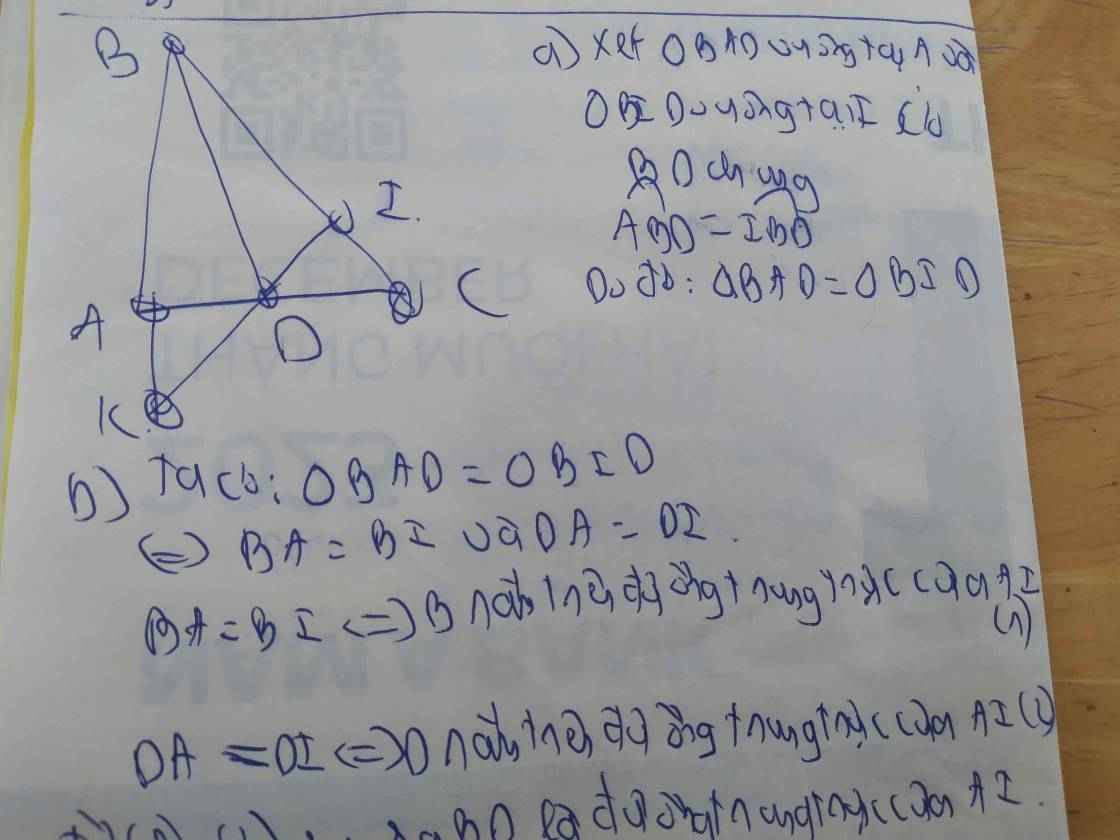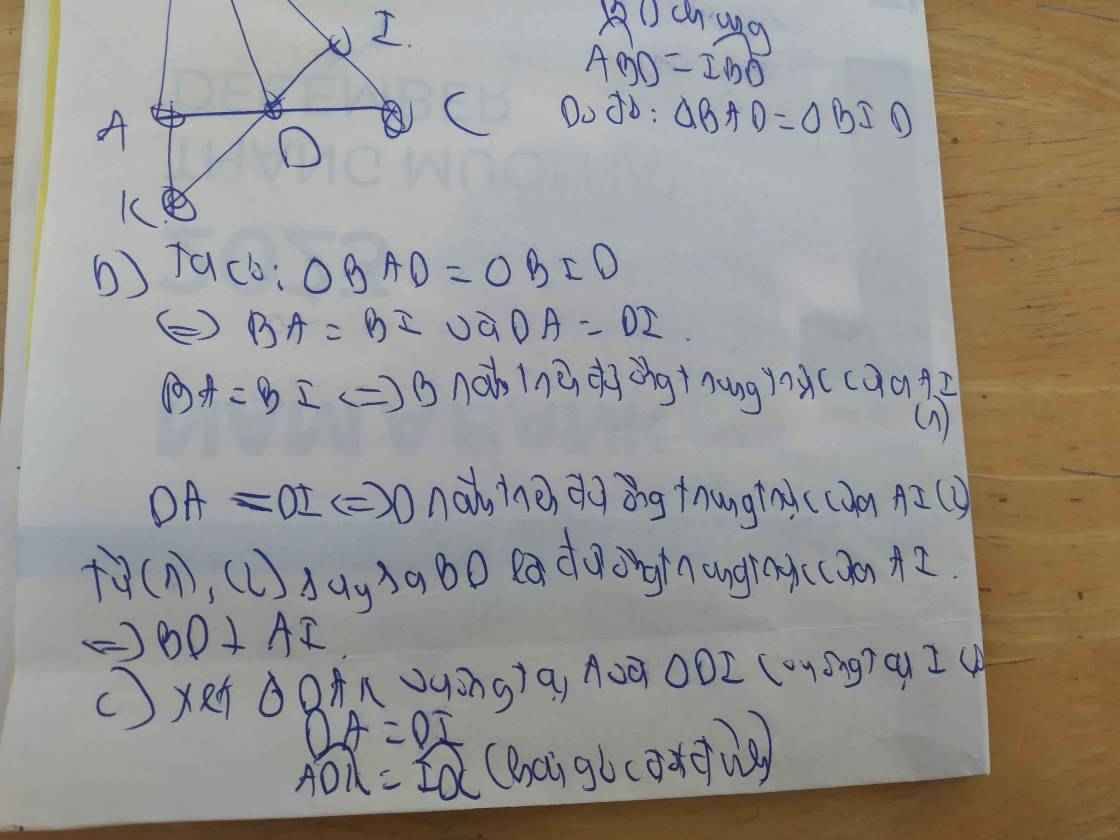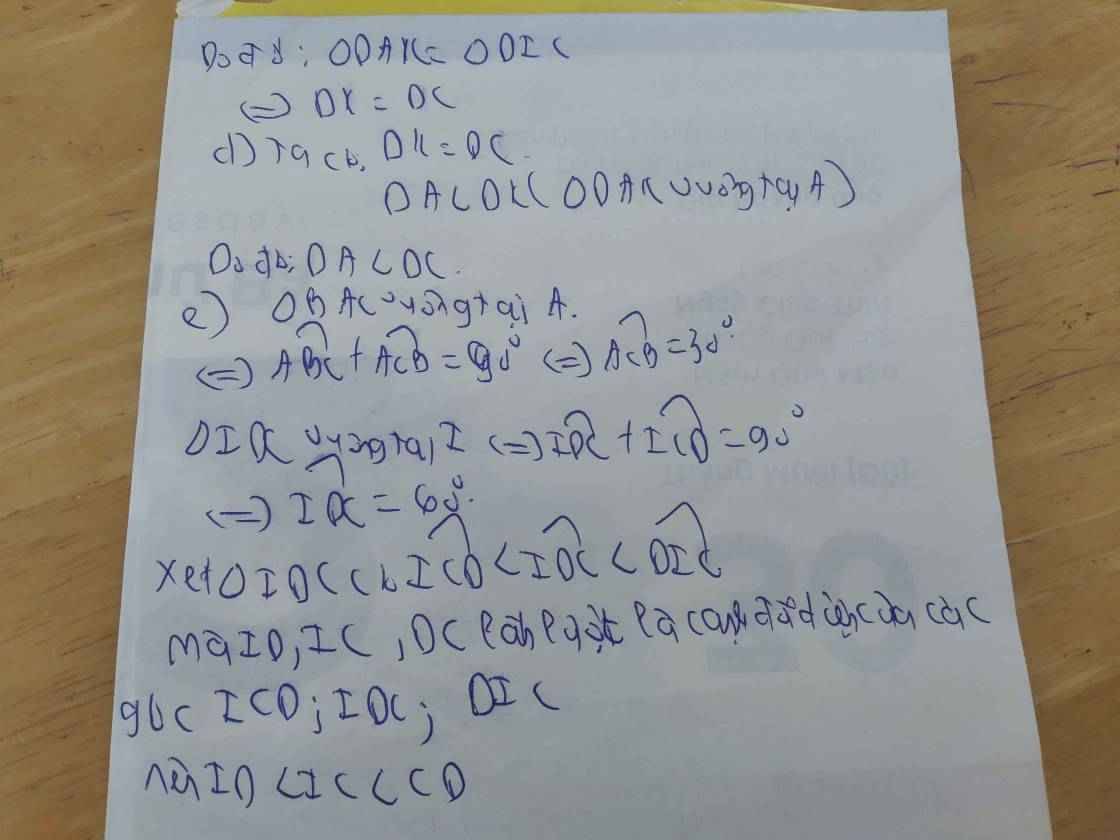Cho tam giác ABC vuông tại A.BD là phân giác của góc B.Vẽ DI ⊥BC(I thuộc bc).Gọi K là giao điểm của hai đường thẳng DI và AB.
a,C/m:△ABD=△iBD
b,c/m:BD⊥AI
c, C/m Dk=DC
d,so sánh AD và DC
g,cho ABC=60 độ.so sánh các cạnh của tam giác IDC
Hãy nhập câu hỏi của bạn vào đây, nếu là tài khoản VIP, bạn sẽ được ưu tiên trả lời.





khí quản , khoang mũi , phế quản , thanh quản , tiểu phế nang , phế nang

Sushi, my favorite culinary delight, is a Japanese dish that has captured my taste buds and heart with its exquisite blend of flavors, textures, and artistry. Comprising vinegared rice, fresh fish, and various ingredients, sushi is a symphony for the palate. The delicate sensation of sashimi, complemented by the crunchiness of tempura, creates a delightful contrast. The vibrant colors and meticulous presentation of sushi plates make each dining experience not only delicious but visually stunning. Soy sauce, wasabi, and pickled ginger add layers of complexity, transforming every bite into a harmonious dance of umami and freshness. Beyond its delectable taste, sushi embodies cultural richness, reflecting Japan's dedication to precision, craftsmanship, and the beauty of simplicity.
What captivates me most about sushi is the artistry behind it. From traditional nigiri to inventive rolls, each piece is a testament to the meticulous craft of Japanese cuisine. The culinary journey extends beyond the plate, delving into the cultural depths of Japan. Sushi serves as a symbol of the country's commitment to excellence, encapsulating the values of discipline and attention to detail. The communal act of sharing a sushi platter with friends enhances the experience, fostering connections and conversations over a shared love for this culinary masterpiece.
Whether indulging in a local sushi bar or attempting to recreate it at home, each encounter with sushi feels like a cultural exploration and a gastronomic adventure. The ritualistic preparation, the artful arrangement of ingredients, and the anticipation before the first bite contribute to the allure of sushi. It's more than a dish; it's a celebration of culinary finesse, cultural appreciation, and shared moments with loved ones.
Sushi has evolved into a global phenomenon, transcending borders and becoming a beloved delicacy worldwide. Its popularity can be attributed not only to its delectable taste but also to its adaptability. Fusion rolls and creative interpretations showcase the versatility of sushi, making it a gastronomic canvas for chefs and enthusiasts alike.
Whether savoring the simplicity of classic nigiri or exploring avant-garde creations, each sushi experience unveils new dimensions of flavor and craftsmanship. The journey through a sushi meal is like a passage through time and tradition, connecting me to the roots of Japanese culinary heritage.
In conclusion, sushi isn't just a favorite food—it's a cultural journey, an artful expression, and a source of joy that transcends the realm of dining. With each roll and every bite, sushi has woven itself into the fabric of my culinary preferences, leaving an indelible mark on my palate and my appreciation for the rich tapestry of Japanese cuisine.


a: Xét ΔAHD vuông tại H và ΔAED vuông tại E có
AD chung
AH=AE
Do đó: ΔAHD=ΔAED
=>\(\widehat{HAD}=\widehat{EAD}\)
=>AD là phân giác của góc HAC
b: Ta có: ΔAHD=ΔAED
=>DH=DE
Xét ΔDHK vuông tại H và ΔDEC vuông tại E có
DH=DE
\(\widehat{HDK}=\widehat{EDC}\)(hai góc đối đỉnh)
Do đó: ΔDHK=ΔDEC
=>DK=DC
=>ΔDKC cân tại D
d: Ta có: ΔDHK=ΔDEC
=>HK=EC
Ta có: AH+HK=AK
AE+EC=AC
mà AH=AE và HK=EC
nên AK=AC
=>A nằm trên đường trung trực của KC(1)
Ta có: DK=DC
=>D nằm trên đường trung trực củaKC(2)
Ta có: IC=IK
=>I nằm trên đường trung trực của KC(3)
Từ (1),(2),(3) suy ra A,D,I thẳng hàng

a: Xét ΔAHB vuông tại H và ΔAKC vuông tại K có
AB=AC
\(\widehat{HAB}\) chung
Do đó: ΔAHB=ΔAKC
=>HB=KC
b: Ta có: ΔAHB=ΔAKC
=>AK=AH
Xét ΔAKO vuông tại K và ΔAHO vuông tại H có
AK=AH
AO chung
Do đó: ΔAKO=ΔAHO
=>\(\widehat{KAO}=\widehat{HAO}\)
=>AO là phân giác của góc BAC
Ta có: ΔABC cân tại A
mà AO là đường phân giác
nên AO\(\perp\)BC

Lời giải:
Áp dụng TCDTSBN:
$\frac{a}{5}=\frac{b}{3}=\frac{c}{7}=\frac{a-b}{5-3}=\frac{10}{2}=5$
$\Rightarrow a=5.5=25; b=5.3=15; c=7.5=35$